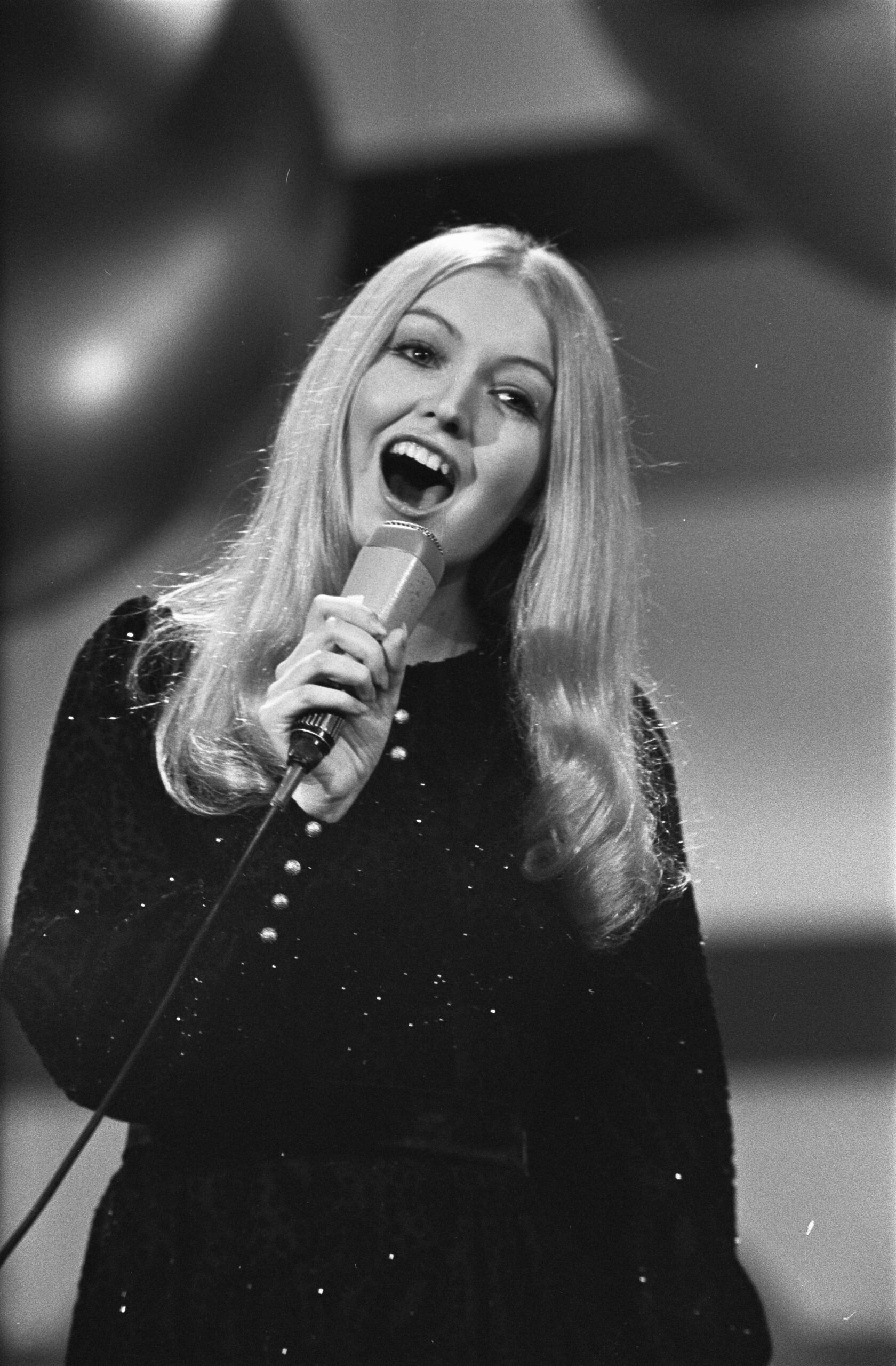Hopkin’s career in summary
Mary Hopkin is a Welsh folk singer principally known for her first hit single “Those Were The Days” in 1968. She also became one of the artists signed on The Beatles’ Apple record label. She had been singing when she was young and once recorded an early EP of Welsh-language songs. She won in the talent show Opportunity Knocks; the model Twiggy saw the program and contacted Beatle Paul McCartney about the young singer. From then, she recorded and released her debut single “Those Were the Days,” which was produced by McCartney. McCartney also midwifed Hopkin’s first LP Postcards in 1969. “Those Were the Days” became a huge hit on both sides of the Atlantic. She went on to score other UK hits such as “Goodbye,” “Temma Harbour,” and “Knock, Knock, Who’s There?” (which she also performed when she represented the UK in the Eurovision Song contest in 1970). Her chart success dwindled as Apple’s fortunes began to go down the drain. Her last known charting song is “If You Love Me (I Won’t Care)” in 1976.
“Those Were The Days” of Mary Hopkin
Mary Hopkin was born in Pontardawe, Wales on May 3, 1950, to a Welsh-speaking family. She began singing as a child, and developed an affinity for folk music. She got her start as a folk singer by being a part of a local Welsh folk band, and releasing a handful of Welsh-language songs.
After Twiggy saw Hopkin at a national talent show, the waifish English supermodel contacted Beatle Paul McCartney, recommending the equally waifish Welsh folk singer to him. Then McCartney signed Hopkin to the Beatles’ Apple record label, becoming one of the imprint’s first artists.
Mary Hopkin’s first single was “Those Were the Days,” an English-language rendition of the traditional Russian folk song “Dorogoi Dlinnoyu” (written by composer Boris Formin). American musician and playwright Gene Raskin had translated the lyrics into English.
When Hopkin’s “Those Were the Days” was released, another singer named Sandie Shaw also issued her own rendition of the song around the same time. There was a kind of rivalry between the two singers. Despite the competition from the more established singer Shaw, in the end Hopkin’s version became far more successful.
“Those Were the Days” topped the UK singles chart, and over in the US it sold over a million and half copies, eventually going gold. The single reached #2 on the Billboard Hot 100, and #1 on the Billboard easy listening chart.
In 1969, Hopkin released her debut LP Postcard, which proved to be her only successful album commercially. It peaked at #28 on the US Billboard 200, and #3 on the UK albums chart.
Hopkin issued her second single “Goodbye,” a song credited to Lennon-McCartney (but was primarily written by McCartney). Also released on Apple label, “Goodbye” went near to the top of the UK singles chart in 1969. In the US, it peaked at #13 on the Hot 100, and #6 on the adult contemporary singles chart that same year.
Her third single “Temma Harbour” (cover of Philamore Lincoln) was released in early 1970. It became her third straight UK top ten hit, at #6. In the US it went to #39 on the Hot 100 and #4 on the Billboard adult contemporary singles chart. It was to be Hopkins’ last US Top 40 hit.
Joining the Eurovision Song Contest
Around the same year Hopkin entered the Eurovision Song Contest, representing the United Kingdom. She sang the UK’s entry to the contest, “Knock, Knock, Who’s There?” which eventually came in second at the end of the competition. “Knock, Knock, Who’s There?” was re-released in 1972, and ended up on the lower rungs of the US Billboard Hot 100 (at #92) but peaked at #11 on the adult contemporary chart.
After the peak years…
Hopkin married producer Tony Visconti in the early 1970s. Her commercial fortunes had declined as Apple Corp had gone into bankruptcy. Since the 1970s she had released no albums or singles of her own, although she recorded songs that featured other artists such as David Bowie and Thin Lizzy. In 1976 she came out with her own single “If You Love Me (Really Love Me),” her cover of Edith Piaf original. It was to be her last charting single to date, reaching #32 on the UK singles chart. During her marriage to Visconti, all of her recordings were produced by her husband and billed under the name Mary Visconti. Their union didn’t last, however, as they divorced in the early 1980s.
Although she never quite recovered her old commercial glory, Hopkin has continued to record and tour. One of her most significant and interesting stints in later years was her well-received role as the Virgin Mary in the Reading production of the playRock Nativity in the 1980s. She also performed with the renowned Irish traditional folk band The Chieftains in several UK tours during the 1990s. Lately, Hopkin has released several records and albums on her self-established independent label Mary Hopkin Music.

